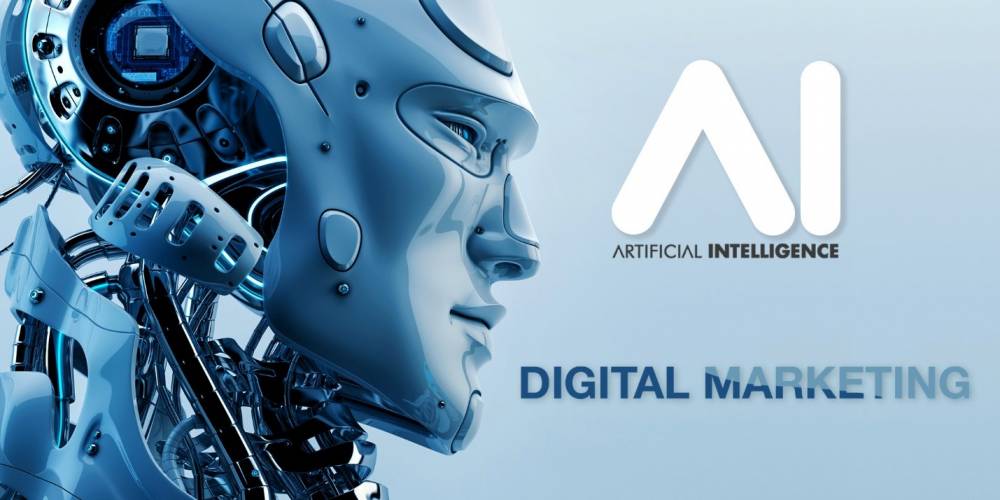3 Major Marketing Problems Addressed by Artificial Intelligence

Written by Sharoon Emmanuel

While digital marketing is the current big thing, the challenge with it is that it does not follow a typical stack or process. Marketeers usually use hundreds of products to cater a myriad of different tasks.
Having the provision of various marketing tools at our disposal is both a blessing and a curse. Where this variety of options allows marketeers to keep up with the ever-evolving digital landscape of consumers and their behaviors, it makes them handle a number of decentralized platforms to manage all their tasks. This results in spending more time managing software instead of managing strategy.
So, without further ado, let’s get down to how Artificial Intelligence can address core Digital Marketing challenges: -
Challenge 1: Absence of Reliable, Centralized Data

One of the major issues marketeers face today is the lack of efficient, cleansed and centralized data. Due to variating standards, multiple collection methods and nonexistent integrations, marketeers find it hard to fill up this gap.
Another issue is the compilation and cleansing of data for specific use cases thus having multiple competing versions of the same data. Without reliable, centralized data, marketeers find themselves in hot waters due to many inefficiencies and lost opportunities. This also disturbs many marketing decisions, such as creative, messaging and campaign parameters that carry chief importance for the overall success of marketing. Having less credible information at hand, marketing professionals are forced to rely on gut feeling and disparate data from multiple sources rather than facts and figures.
The insidious effect of poor data centralization is declined efficiency of campaigns and ad space buying cost going high. It also leads to poor customer experience as campaigns are designed irrelevant to the needs and context of the consumer.
Solution:
Many MarTech corporations aim to be an Artificial Intelligence layer that consolidates and manages communication and data across all marketing tools. The players best positioned to win are major enterprises like Salesforce, HubSpot, Oracle and Adobe, which already offer end-to-end solutions within their developed ecosystems.
Common examples of such ecosystems is "Einstein", an AI layer that optimizes results across all of Salesforce’s Clouds. Use cases of Einstein are personalizing product recommendations, customer segmentation and advanced targeting etc.
Related: - AI services in Dubai
Challenge #2: Talent Gap

Gaining mastery on a myriad of marketing tools brings many training challenges for marketing teams and makes expertise bottlenecks. Less trained officials tend to build campaigns around one or two parameters, making it hard to generate mature leads and close better sales.
Even if organizations do get their data centralized for actionable measures, specialized resources are still required to process and operate accordingly.
Solution: -
AI addresses this challenge by automating most marketing tasks to improve accuracy and reduce workload thus allowing teams to be effective and efficient. By utilizing technology to automate tedious marketing tasks, processing campaign setup, segmenting audience, spotting patterns, breaking down ad campaigns into several micro-campaigns and allocating budget to the best-performing ads can be accomplished with least human intervention.
Challenge #3: Inability to Calculate ROI

Due to the inconsistency of data, marketeers find it hard to consolidate insights and calculate ROI. Due to the fear of accountability, most marketing officials cherry-pick metrics to present to key stakeholders rather than analyzing the hard truth and showing a clear picture.
Solution: -
The latest neutral network approaches like deep learning have the capacity to detect patterns, allowing businesses to check a refined view of things going on. Rather than manually spending hours to analyze a specific metric, machines can simultaneously measure a humongous amount of data in a matter of seconds thus ensuring more tractability.
Moreover, it helps to discover the best user-generated content (UGC) around the brand, segment audience, understand customer and lead behavior, categorize around customer personas, predict purchase patterns & performance, analyze demographic & psychographic indicators and suggest the right content for the right marketing channel.
Related: - Artificial Intelligence Companies in UAE
Wrapping Up- The Future of AI in Marketing
The holy grail for marketing professionals and business owners has always been low customer acquisition cost and personalization. As AI & ML is becoming a core component of the marketing and advertising technology stack, challenges with data collection, cleansing and centralization won’t continue to plague marketing teams and businesses.
If you’d like to discuss more about how our artificial intelligence infused marketing solutions can help you to gain a competitive advantage, feel free to get in contact.
Originally Published March 3, 2019 02:00 AM, Updated March 6, 2019.




